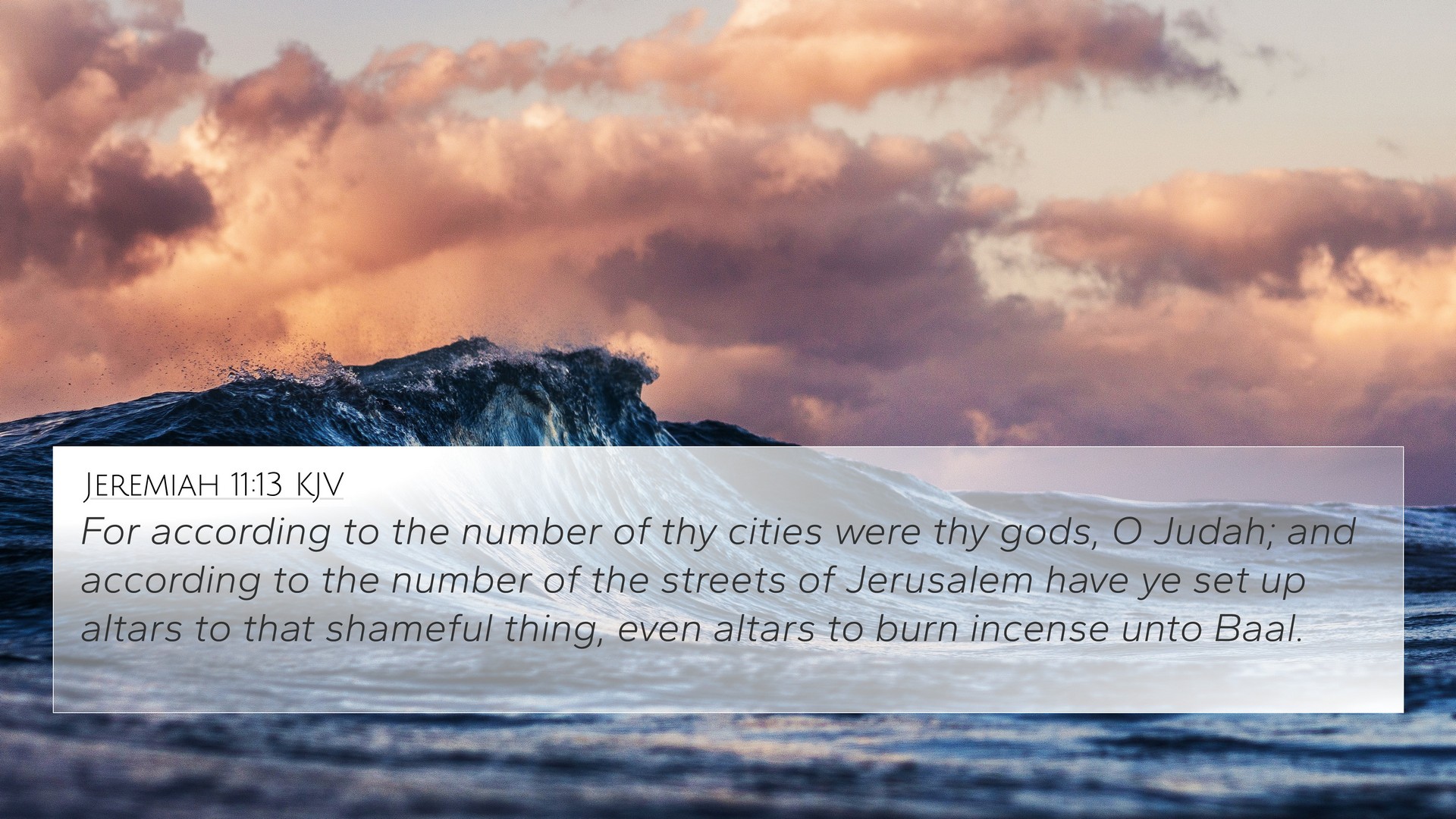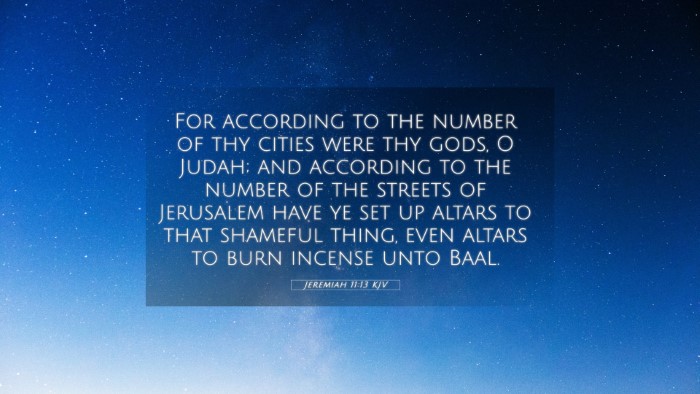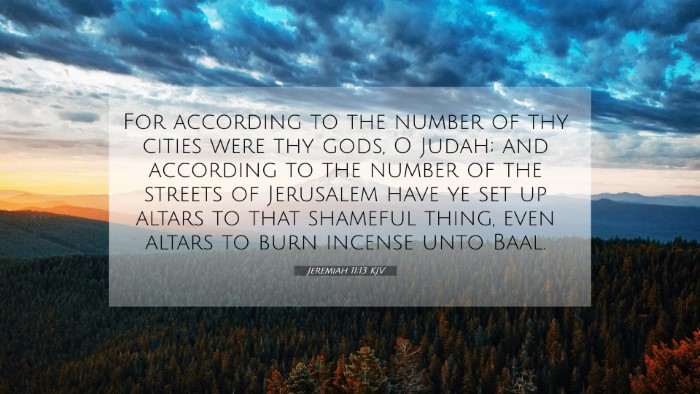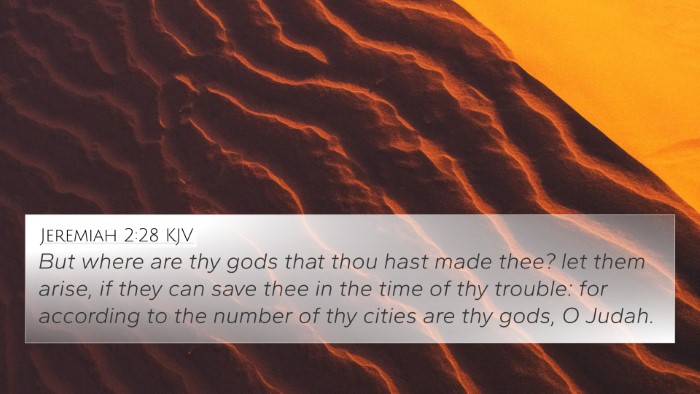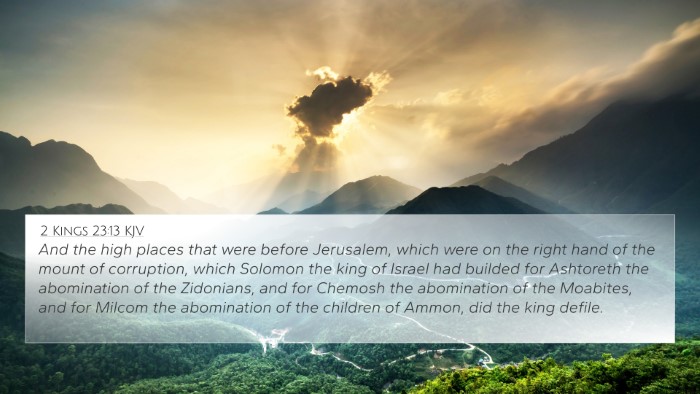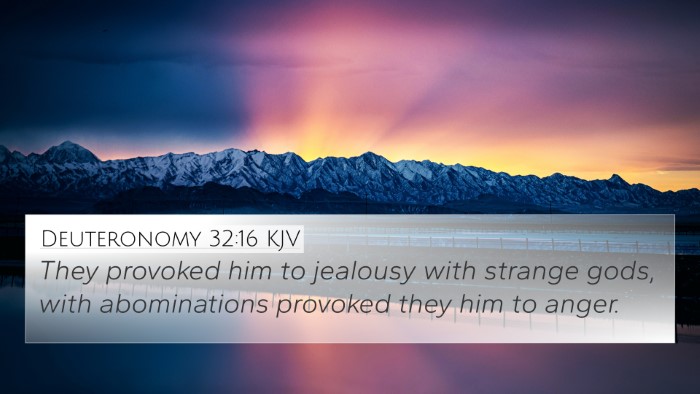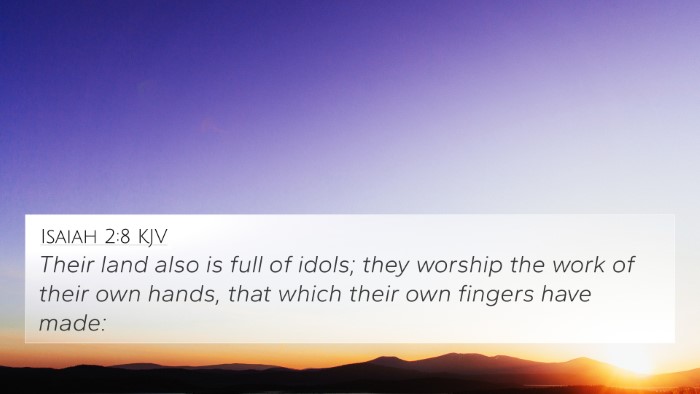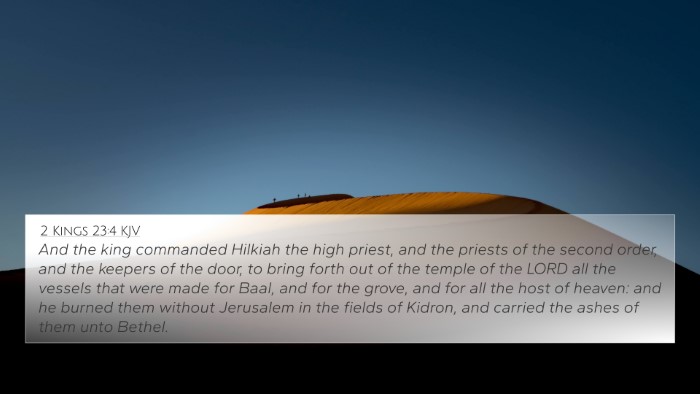Understanding Jeremiah 11:13
Jeremiah 11:13 is a profound verse that brings to light the covenant relationship between God and Israel, emphasizing the consequences of idolatry and disobedience. This verse states:
"For according to the number of your cities were your gods, O Judah; and according to the number of the streets of Jerusalem have ye set up altars to that shameful thing, even altars to burn incense unto Baal." (KJV)
Meaning and Context
In this passage, the Prophet Jeremiah laments the idolatry rampant in Judah and how it stands in stark contrast to their covenant with God. The reference to "the number of your cities" indicates the depth of their idolatry; each city seems to have its own deity, showcasing disloyalty to the one true God.
Insights from Commentaries
-
Matthew Henry: Henry emphasizes that the multitude of gods signifies a departure from true worship. He reflects on the people's propensity to forsake the Almighty, leading to spiritual and moral decay.
-
Albert Barnes: Barnes points out that such widespread idolatry reveals the heart of man’s rebellion against God. He highlights the urgent need for repentance and the dire consequences of turning away from God’s commandments.
-
Adam Clarke: Clarke elaborates on the phrase “altars to that shameful thing,” interpreting it as a direct affront to the holiness of God. He notes that the people's actions lead them to disgrace and destruction, which serves as a cautionary tale.
Bible Verse Connections
This verse connects deeply with various themes present in the Bible, particularly regarding the worship of false gods and the necessity of faithfulness to God. The following verses provide a context for understanding Jeremiah 11:13:
- Exodus 20:3-5: “Thou shalt have no other gods before me.” This commandment directly correlates with Judah's idolatry.
- Deuteronomy 6:14: “Ye shall not go after other gods, of the gods of the people which are round about you.” This reiterates the call for exclusive devotion to God.
- Isaiah 44:17: “And the residue thereof he maketh a god, even his graven image: he falleth down unto it, and worshippeth it.” This highlights foolishness in idolatry, resonating with Jeremiah’s message.
- Hosea 4:17: “Ephraim is joined to idols: let him alone.” This shows the despair over Israel’s decisions, mirroring Jeremiah’s warnings.
- Revelation 2:14: “But I have a few things against thee, because thou hast there them that hold the doctrine of Balaam.” This connects the New Testament’s warning against idol worship.
- Acts 17:29: “Forasmuch then as we are the offspring of God, we ought not to think that the Godhead is like unto gold, or silver, or stone, graven by art and man's device.” This captures the futility of making gods from earthly materials.
- 1 Corinthians 10:14: “Wherefore, my dearly beloved, flee from idolatry.” A New Testament exhortation that resonates with Jeremiah’s call to reject idolatry.
Thematic Analysis
Thematically, Jeremiah 11:13 addresses several critical issues:
- Idolatry: The text serves as a stark reminder of how idolatry leads people away from God’s intended purpose for them.
- Covenant Faithfulness: It reflects the breach of covenant between God and His people, urging a return to faithful worship.
- Consequences of Sin: The warning implicates the dire outcomes of disobedience, serving as both a warning and a call to repentance.
Tools for Bible Cross-Referencing
To analyze Jeremiah 11:13 comprehensively, various tools can aid in understanding connections between scriptures:
- Bible Concordance: A valuable resource for locating themes and topics across different scriptures.
- Bible Cross-Reference Guide: Offers insights into interconnected passages and their significance.
- Cross-Reference Bible Study: Encourages deep diving into related verses to grasp full contextual meanings.
- Bible Reference Resources: Includes study Bibles and commentaries that provide modern interpretations.
- Bible Chain References: A method of linking verses that share common themes or messages.
Conclusion
Jeremiah 11:13 serves as a vital text for understanding the gravity of idolatry and the importance of remaining faithful to God. By utilizing various commentaries and connecting this verse with others in scripture, one can gain a richer understanding of God’s message throughout the Bible. The interconnectedness of these passages serves to strengthen our faith and direct our worship appropriately.
